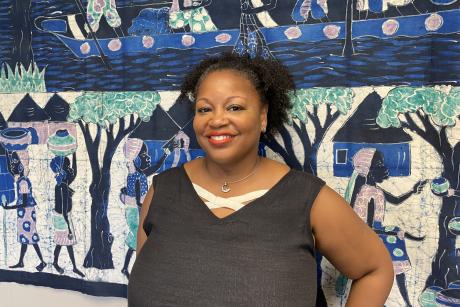
In the report, the authors propose four key steps to strengthen U.S. efforts in developing vaccines, drugs and other tools to combat neglected diseases and conditions.
Published February 28, 2017 under Research News
A new report co-authored by faculty and staff from the Duke-Margolis Center for Health Policy, the Duke Global Health Institute (DGHI) and DGHI’s Center for Policy Impact in Global Health examines opportunities to strengthen the United State government’s role in developing global health technologies.
U.S. government investment in developing vaccines, drugs and other tools to combat neglected diseases and conditions has reached its lowest level since 2007, excluding emergency funds provided to combat the Ebola outbreak.
At the same time, the U.S. government remains the largest funder of global health research and development (R&D), supplying three-quarters of all government funding worldwide, which supports activities carried out by multiple government agencies and programs and through private sector, academic and nonprofit partners.
These activities are vital to generating new and improved technologies to fight the world’s deadliest diseases and prevent global epidemics.
Reversing this decline in U.S. investment and advancing policy solutions to build new partnerships, leverage expertise, and encourage investment from all sectors will save lives and increase economic opportunity in low- and middle-income countries, while also creating jobs and boosting the U.S. economy, the co-authors argue.
The team conducted research into the ecosystem of global health R&D players, funding landscape, and the ways U.S. government funding is determined, gathering input from a broad range of stakeholders in the public, private and nonprofit sectors.
“Americans should feel proud of the U.S. government’s historic leadership in advancing global health research,” said Gavin Yamey, professor of global health and public policy and director of the Center for Policy Impact in Global Health. “The government now has the opportunity to double down on this leadership by increasing funding for such research, which would help transform the lives of the world’s poorest people while also being a boon to the U.S. economy.”
The authors propose four key steps to strengthen U.S. efforts, while maintaining or increasing funding, including:
- Expand and replicate successful mechanisms that encourage the private sector to develop and bring new innovations to market, and better leverage under-used R&D capacities within the US government, such as health research capabilities of the U.S. Department of Defense.
- Strengthen the U.S. government’s collaborations with other actors in the global health R&D space, including through greater participation in and funding of global public-private partnerships for product development.
- Adopt uniform definition of global health R&D across U.S. government agencies to allow for better tracking of funding flows and inform strategic prioritization of activities.
- Support research driven by low- and middle-income countries, and advance capacity building programs to improve the ability of these nations to invest in, develop and approve new, appropriate technologies that meet domestic health needs while creating a more sustainable model for financing health R&D.
Refining and implementing these solutions, the team notes, will require continued engagement with U.S. policy makers and advocacy efforts that emphasize the return on investment, both in the U.S. and abroad, for global health R&D.
In addition to Yamey, other members of the research team include Andrea Thoumi and Jonathan Gonzalez-Smith from Duke-Margolis, Cynthia Binanay and Ipchita Bharali from DGHI, Zeena Johar from Duke-Margolis and Innovations in Healthcare, David Ridley from Duke-Margolis and the Fuqua School of Business and Nick Chapman from Policy Cures Research.
Read the full report.
U.S. government investment in developing vaccines, drugs, and other tools to combat neglected diseases and conditions has reached its lowest level since 2007, excluding emergency funds provided to combat the Ebola outbreak.


